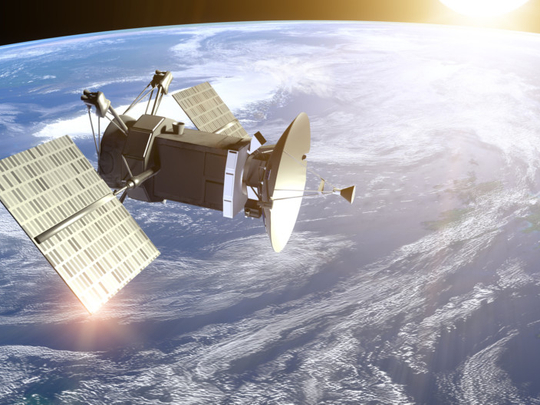
Dubai: Despite being a key global hub for international trade and transport logistics, the Middle East is yet to fully exploit the benefits of satellite data solutions for performance management, said an industry expert.
Hussain Oteifa, General Manager at satellite operator SES Middle East, said that the GCC region’s position on the globe has cemented its place as a leading sea-air multimodal transport hub in the world — a cost-effective transport mode that provides considerable savings in transit time and freight cost, compared to pure sea freight or airfreight mode.
“Sea-air connectivity in the region allows transit time of only 15 to 17 days from the origin port in India and China to a destination airport in continental Europe and beyond, and savings on costs of as much as 50 per cent compared to pure airfreight,” he said.
The recent ‘Dubai Maritime Week’ held in Dubai discussed at length the concept of “Smart shipping”, which has been gaining traction among regional maritime service providers.
Smart shipping is essentially the use of Big Data and satellite solutions to optimise ship operations and improve ship-to-shore communications.
According to Euroconsult’s 2015 report on Maritime Telecom Solutions, the value of the global maritime satellite communications market is expected to double over the next decade, with an annual growth rate of six per cent in terminals and eight per cent in revenue over a 10-year period.
Firstly, he said that vessel performance in areas such as machinery parameters, fuel consumption, vessel speed etc is critical to maintaining efficiency in operations.
Despite this, he said that issues such as cargo security and fleet capacity management continue to be limiting factors for the continued growth of the region as a multi-modal logistics platform. This is where satellite solutions could be of incredible value.
“Satellite is vital for real-time data communications, which enables reporting and swift decision making to overcome these challenges. Through satellite connectivity, ship operators can remotely manage operations, thereby allowing work to be done with fewer resources on board vessels,” he said.
With live surveillance, monitoring, and asset-tracking made available, he said that operators can be assured of greater security, safety and operational efficiencies.
In the maritime sector, demand for yachts and big data is driving the need for satellite data. According to research by a unit of Art Marine, a marine hospitality company, the UAE itself has 30 marinas and over 4,800 berths, accounting for 38 per cent of the entire GCC marina market.
“Aeronautical connectivity is the other key driver for satellite data services in the region. Today’s aircraft operators, too, understand that reliable satellite connectivity is important for enhancing operations and enabling efficiencies,” Oteifa said.
In fact, IATA, which represents nearly 260 airlines comprising 83 per cent of global air traffic, reported that capacity of Middle East carriers rose by 15.5 per cent year-on-year in July this year. Overall, Middle Eastern carriers had a 9.4 per cent share of total global passenger numbers. This increase in capacity is bound to spur demand for data services.
“Over the past few years, we have seen more effective satellite solutions emerge with the capabilities to answer to growing data demand from aeronautical and maritime industry players across the region,” he said.
As the Middle East undergoes a shift in policy priorities towards further diversification of local economies, he said that the maritime and aeronautical sectors are likely to be the key drivers for the growth of satellite data in the region.











